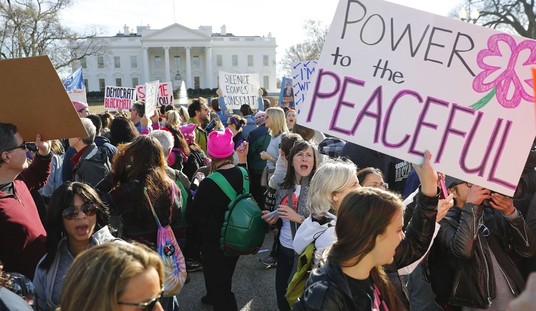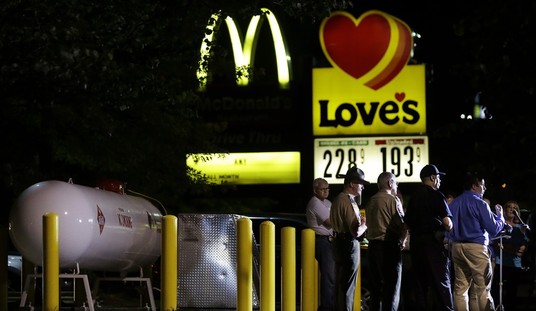In contrast to the Senate plan — which would provide one clear, if difficult, path to citizenship for the 11 million illegal immigrants already in the country — the House legislation will most likely offer three distinct paths to legal status.
Young immigrants in the country without legal papers, who often call themselves “Dreamers,” and low-skilled agricultural workers would qualify for an expedited road to legal status, people familiar with the negotiations said. The Dreamers should not be punished for being brought illegally to the country by their parents, House aides said, and the members agreed that the agricultural workers perform crucial work for the economy…
The second group to receive a path to legal permanent residence would be immigrants who have either a family or an employment relationship that would allow them to apply for legal status, except that they have already entered the country illegally. Currently, most of those immigrants would have to return to their home country for either 3 or 10 years before they would be eligible to reapply…
The remaining illegal immigrants could apply for “provisional legal status” if they came forward and admitted breaking the law, paid fines and back taxes, and learned English, much as they could under the Senate plan, aides said. This status would allow them to live, work and travel in the country legally, and they could then apply through regular channels for a green card after 10 years and citizenship 5 years after that.
Partisan and ideological divisions on a path to citizenship remain vast and essentially unchanged in recent months. Democrats support the idea by a wide 73-25 percent; independents by a majority 58-39 percent. Republicans oppose it, 60-35 percent – numerically a new low in support in three ABC/Post polls since last November, albeit just by 2 percentage points…
There’s also a sharp generational break in this poll produced for ABC by Langer Research Associates: Adults younger than age 40 – a group that decisively favored Obama over Romney in the election – back a path to citizenship by 67-30 percent. Support drops to a bare majority, 51 percent, among those 40 and up, a majority of whom voted for Romney.
Those differences underscore the challenges facing Republican Party leaders: Stay loyal to the policy preference of their party faithful and core support groups including whites, older adults and conservatives, at the risk of clinging to an inadequate support base; or seek to appeal to groups such as Hispanics, younger adults and moderates, at the risk of alienating the party’s core.
President Obama believes that the expected bipartisan immigration reform proposal should not receive extended scrutiny by lawmakers in committee, according to his spokesman, who said that immigration debates in past year should suffice.
“[A]s veterans of the Senate know, this issue has been under consideration at very serious levels periodically for a long time now,” White House Press Secretary Jay Carney said during the gaggle today. “There is a great need to act on comprehensive immigration reform and a great opportunity to do it now, as the President has made clear. It has been in the past, and seems to be now, a bipartisan priority. And that is as it should be, in the President’s view.”
Carney was rejecting Rubio’s call for “regular order,” which would entail multiple hearings on the bill and provide senators with greater latitude to offer amendments to the bill.
As the Gang of Eight negotiates and prepares to roll out a comprehensive immigration reform bill, members of the “gang” have not publicly addressed concerns that remain about policies surrounding law already on the books — specifically one relating to immigrant dependence on welfare…
“One of the biggest potential loopholes in the plan the Gang of Eight may produce concerns access to public benefits and welfare programs,” Sessions said in a statement to TheDC. “Nothing in the framework from the Gang of Eight appears to correct one of the most important areas of federal immigration law that has not been enforced: public charge law.”
South Carolina Republican Sen. Lindsay Graham’s office has chosen not to answer questions about whether the public charge statute would apply to undocumented immigrants granted legal status and an eventual green card (which would open access to a vast swath of welfare assistance programs) under a comprehensive immigration reform plan.
Immigration and Customs Enforcement union president Chris Crane told reporters on Wednesday that the Mexican drug cartels’ influence inside the United States has been “almost completely absent” from the immigration reform debate but needs more attention.
“I mean, if these folks coming over here taking work, we know that the drug cartels’ troops and the soldiers are all within the interior of the United States as are many other criminal elements and criminal individuals,” Crane said on a conference call with media. “There are people coming here for this to be a land of opportunity and there are people coming here because this is a target of opportunity. We believe there is a very disproportionate number of criminals coming into the United States.”…
“If we don’t take care of the enforcement part of this first, it will never happen,” Crane said. “The only thing that will happen is that 11 million illegal aliens will be legalized and 10 to 20 years from now, the nation will again be facing the influx of another 10 to 20 illegal aliens and all the problems and extents associated with that. We will be right back to where we are right now with a failed immigration system.”
But past experience and current trends in both Mexico and the United States suggest that legalization would not lead to a sudden flood of illegal immigration on the scale of what occurred after 1986. Long-running surveys of migrants from Mexico found that work, not the potential to gain legal status, was the main cause of increased border crossings in the 1990s and 2000s. And as Mr. Saldivar points out, times have changed.
The American economy is no longer flush with jobs. The border is more secure than ever. And in Mexico the birthrate has fallen precipitously, while the people who left years ago have already sent their immediate relatives across, or started American families of their own.
“It’s a new Mexico, it’s a new United States, and the interaction between them is new,” said Katherine Donato, a sociologist at Vanderbilt University who specializes in immigration. As for Congressional action spurring a surge of illegal crossings, she added: “You’re just not going to see this massive interest. You don’t have the supply of people. You have a dangerous trip that costs a lot more money, and there has been strong growth all over Latin America. So if people in Central America are disenfranchised and don’t have jobs, as was the case in Mexico three or four decades ago, they might decide to go south.”
Conservative faith leaders in the Palmetto state are now being joined by church leaders in North Carolina, Texas, Colorado and Florida producing and airing a series of ads designed to change the hard-line views of conservative Christians on the issue…
“These folks speak English, they work hard, they pay taxes … they are great neighbors they are friends of ours,” he said. “We live together, we work together, we serve together. We are all in this together. We see the immigrant as a person created in the image of God.”








Join the conversation as a VIP Member